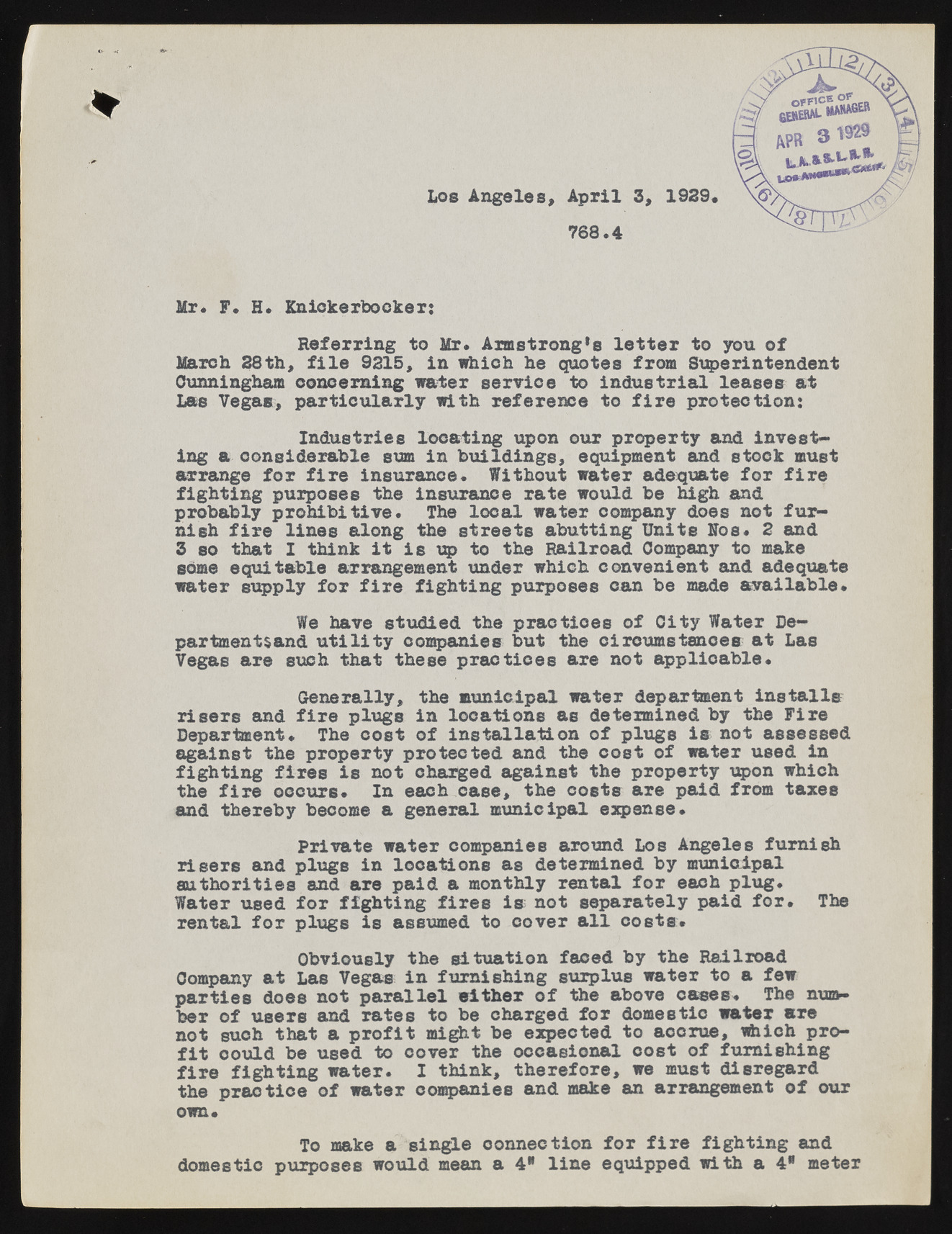Copyright & Fair-use Agreement
UNLV Special Collections provides copies of materials to facilitate private study, scholarship, or research. Material not in the public domain may be used according to fair use of copyrighted materials as defined by copyright law. Please cite us.
Please note that UNLV may not own the copyright to these materials and cannot provide permission to publish or distribute materials when UNLV is not the copyright holder. The user is solely responsible for determining the copyright status of materials and obtaining permission to use material from the copyright holder and for determining whether any permissions relating to any other rights are necessary for the intended use, and for obtaining all required permissions beyond that allowed by fair use.
Read more about our reproduction and use policy.
I agree.Information
Digital ID
Permalink
More Info
Rights
Digital Provenance
Publisher
Transcription
Los Angelss, April 3, 1929 768.4 Mr. F. H. Knickerbocker: Referring to Mr. Armstrong^ letter to you of March 28th, file 9215, in which he quotes from Superintendent Cunningham concerning water service to industrial leases at Las Vegas, particularly with reference to fire protection: Industries locating upon our property and investing a considerable sum in buildings, equipment and stock must arrange for fire insurance. Without water adequate for fire fighting purposes the insurance rate would be high and probably prohibitive. The local water company does not furnish fire lines along the streets abutting Units Nos. 2 and 3 so that I think it is vsp to the Railroad Company to make some equitable arrangement under which convenient and adequate water supply for fire fighting purposes can be made available. We have studied the practices of City Water De- partmentsand utility companies but the circumstances at Las Vegas are such that these practices are not applicable. Generally, the municipal water department installs risers and fire plugs in locations as determined by the Fire Department. The cost of installation of plugs is not assessed against the property protected and the cost of water used in fighting fires is not charged against the property upon which the fire occurs. In each case, the costs are paid from taxes and thereby become a general municipal expense. Private water companies around Los Angeles furnish risers and plugs in locations as determined by municipal authorities and are paid a monthly rental for each plug. Water used for fighting fires is not separately paid for. The rental for plugs is assumed to cover all costs. Obviously the situation faced by the Railroad Company at Las Vegas in furnishing surplus water to a few parties does not parallel wither of the above cases. The number of users and rates to be charged for domestic water are not suoh that a profit might be expected to aoorue, which profit could be used to cover the occasional cost of furnishing fire fighting water. I think, therefore, we must disregard the practice of water companies and make an arrangement of our own. To make a single connection for fire fighting and domestic purposes would mean a 4" line equipped with a 4* meter

